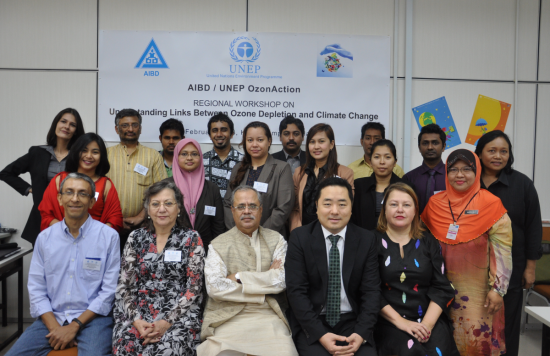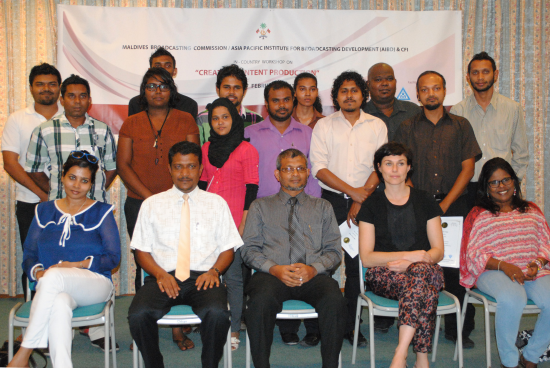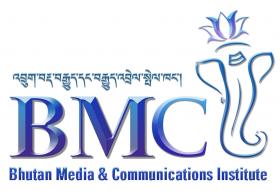Broadcasters in Asia-Pacific ended the two-day International Conference on Broadcast Training in Kuala Lumpur on 26 February 2013 by examining the demands of training institutions of the future. They identified measures to foster a performance driven culture that meets the demands of new media and social media and contributes to the company’s growth and sustainability, and increased customer satisfaction and contribution to society.
Broadcasters in Asia-Pacific ended the two-day International Conference on Broadcast Training in Kuala Lumpur on 26 February 2013 by examining the demands of training institutions of the future. They identified measures to foster a performance driven culture that meets the demands of new media and social media and contributes to the company’s growth and sustainability, and increased customer satisfaction and contribution to society.

In the concluding session of the conference, Dato’ Adilah Shek Omar, Director of the Institute of Broadcasting and Information (IPPTAR), Malaysia, said the way ahead for training institutions was to pursue joint regional cooperation with other training institutions and media development institutions worldwide by, among others, sharing subject matter experts, lectures’ view through teleconferencing, and close collaboration with industry players and manufacturers.

“The chances for survival in a competitive environment are better if we support each other,” she said.
Another speaker was Mr. Anothai Udomsilp, Director of the Academic Institute of Public Media, Thai Public Broadcasting Service. He recommended training in digital migration not only for engineers and technicians but other stakeholders to facilitate understanding acceptance of moving towards using digital technology. He also highlighted the need to train multiplatform journalists and producers for creative content.

Professor Ramachandran Ponnan, Senior Lecturer, School of Communication, Taylor’s University, Malaysia highlighted the importance of enhancing the school curriculum to contribute towards better education and better graduates who can meet the demands of new media and social media. He also called on media stakeholders for resource sharing, meta analysis, management of uncertainties, and sabbatical opportunity to meet future training needs.

For his part, Mr. David Hivet, Director, Mediterranean Region and Asia, Canal France International, France, discussed the future of human resource organizations in the media industry; among them, that traditional media will face more and more competition, new actors, new tools, new methods, new expectations from the public, and new economic models.

“We need to ask what the real value of a media organization in this changing media landscape, and how the human resource can contribute positively to this value creation,” he said.
For Myanmar’s future plan in strengthening its training institution, Mr. Khin Maung Htay, Director and Co-Founder, Myanmar Media Development Center, Myanmar, said they will extend and implement new courses based on the emergence of global media trend multiplatform, provide best educational services in the media field to enhance competence of media professionals, increase open learning opportunities for knowledge sharing and continue collaboration with International partners.

Training Institutions of the Future
Broadcasters in Asia-Pacific ended the two-day International Conference on Broadcast Training in Kuala Lumpur on 26 February 2013 by examining the demands of training institutions of the future. They identified measures to foster a performance driven culture that meets the demands of new media and social media and contributes to the company’s growth and sustainability, and increased customer satisfaction and contribution to society.
Approaches to Attracting and Retaining Broadcast Talents
Mr. Murtaza Solangi, Director General, Pakistan Broadcasting Corporation, says that for public sector media organizations to attract and retain talents, they should continue to promote the best creating systems for their upward mobility, create a system of rewards and appreciation, offer opportunities for building the capacity of the best and constantly give pat on the back of the best.
Strengthening the New Media Feature of TV Programs
Mr. Wu Keyu, Director of Research and Development Department of Programming Office, China Central Television (CCTV), China today urged broadcasters to strengthen the new media features of TV programs and enhance audience interaction through the multi-media platforms to be able to build a bridge between television and new media.
Exploiting Cutting Edge Training Tools and Methodologies
Mrs. Nathalie Labourdette, Head of Eurovision Academy, Switzerland, has identified the ‘S’ analysis model as a strategy broadcast companies can use to nurture an agile and learning organization for innovation and performance in the ever-changing media landscape.
Addressing Human Resource Needs in the Digital World
The Tun Abdul Razak Institute of Broadcasting and Information (IPPTAR) and the Asia-Pacific Institute for Broadcasting Development (AIBD), with the support of the Ministry of Information, Communications and Culture (KPKK), Malaysia, is pleased to organize the 1st International Conference on Broadcast Training on 25-26 February 2013 in Kuala Lumpur, Malaysia at the Royale Chulan Hotel. This gathering will bring more than 60 delegates from major broadcast training institutions of over 20 countries to discuss the pertinent topics facing the industry now and in the future.
1st International Conference on Broadcast Training Opens
The 1st International Conference on Broadcast Training opened today in Kuala Lumpur, bringing more than 60 delegates from major broadcast training institutions of over 20 countries to examine opportunities and challenges in enhancing human resource capacity in the ever-changing media landscape.
IPPTAR Conference
YB Dato' Seri Utama Dr Rais Yatim, Malaysian Minister of Information, Communications and Culture, urges broadcasters to accept new media to complement program delivery, stressing the need to engage rather than confront this new challenge in the evolving media environment.
AIBD, UNEP OzonAction Regional Workshop on Understanding Links Between Ozone Depletion and Climate Change
The 3-day regional media workshop from 20-22 February 2013 in Kuala Lumpur, Malaysia engages a selected group of broadcast television professionals from the Asia Pacific region on the current status and challenges in ozone layer protection and its links to combating climate change.
AIBD/CFI/MBC In-country Workshop on Creative Content Production
The In-country workshop on creative content production organized by AIBD with the support of CFI was successfully held from 3 to 7 February 2013 in Male, Maldives. Maldives Broadcasting Commission (MBC) hosted the workshop.
BMCI Joins AIBD Family
Bhutan Media & Communications Institute (BMCI), a unique training institute in Bhutan dedicated to support the professional growth of Bhutanese media industry, has become AIBD's affiliate member.





